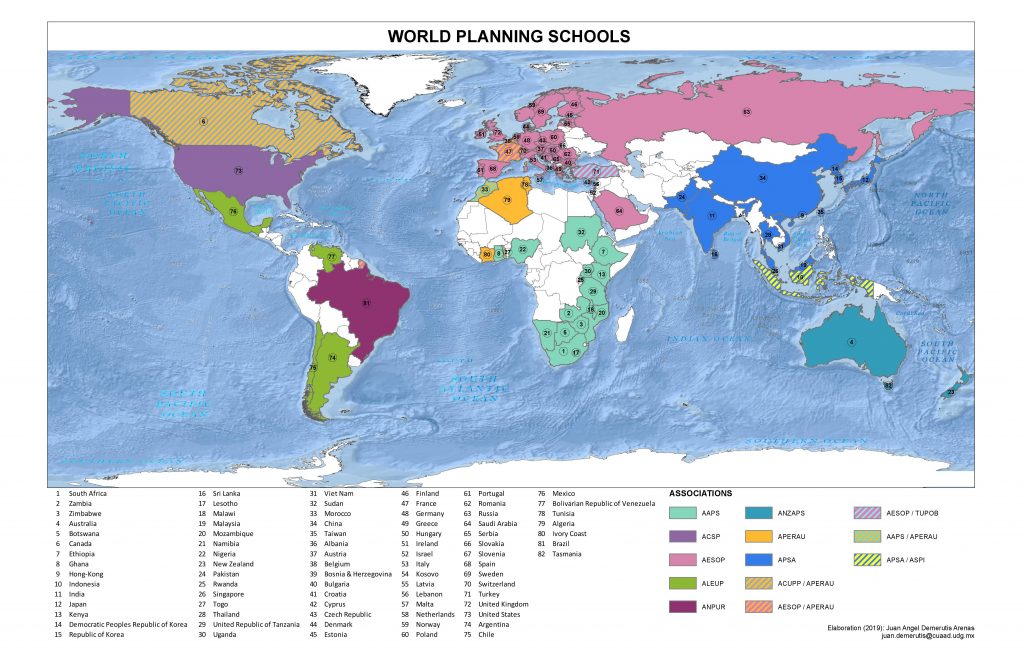
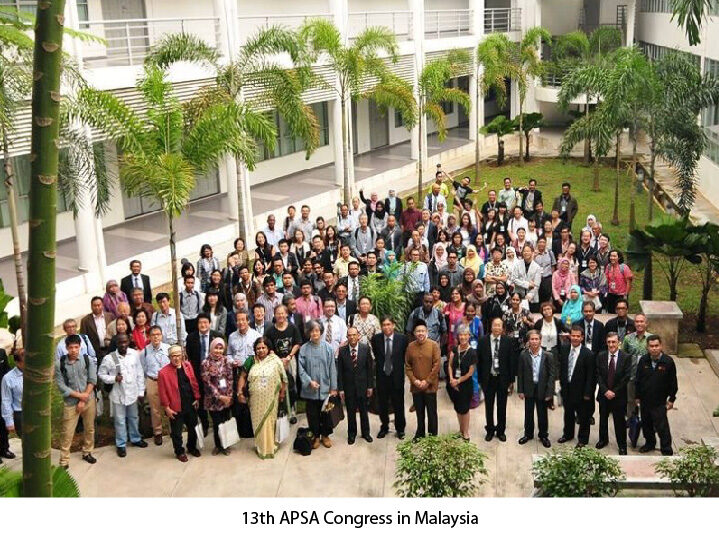
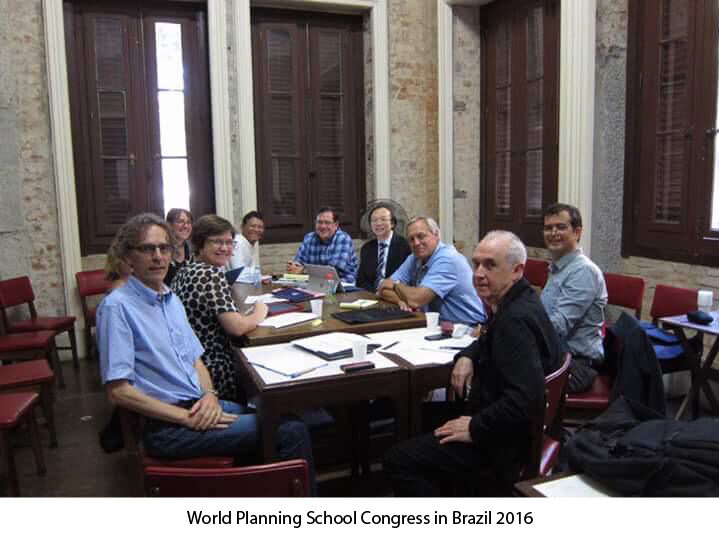
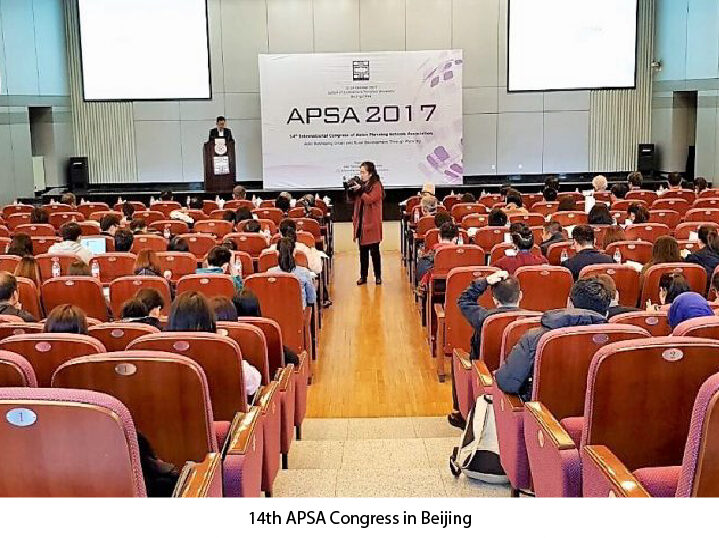
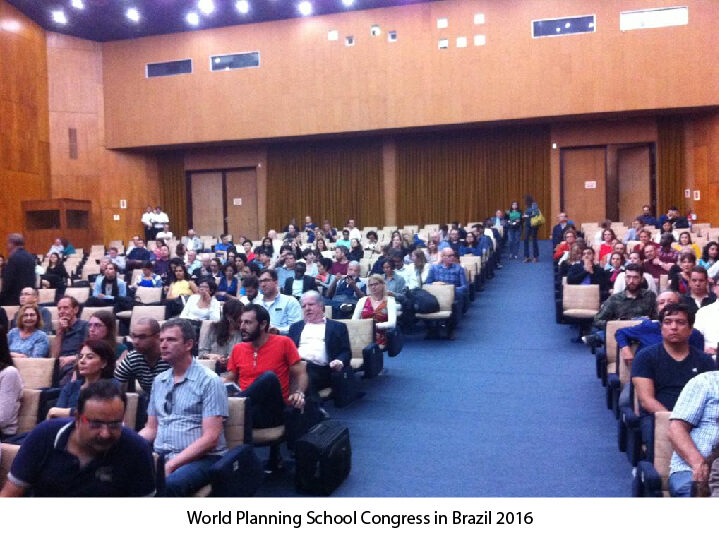
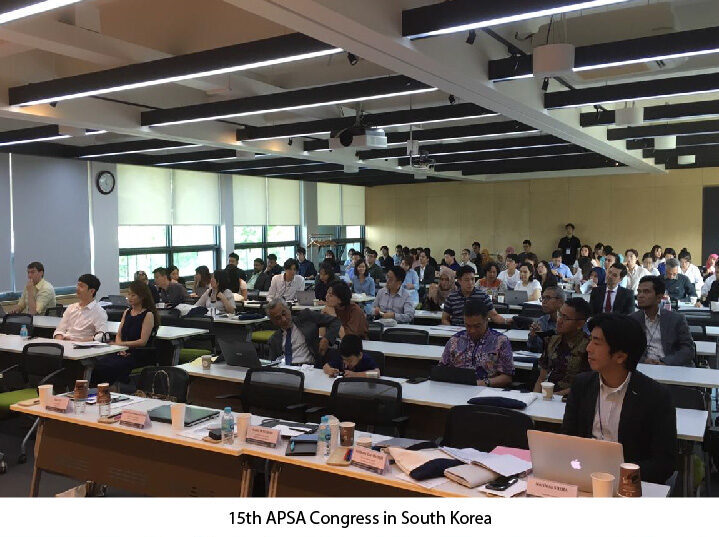
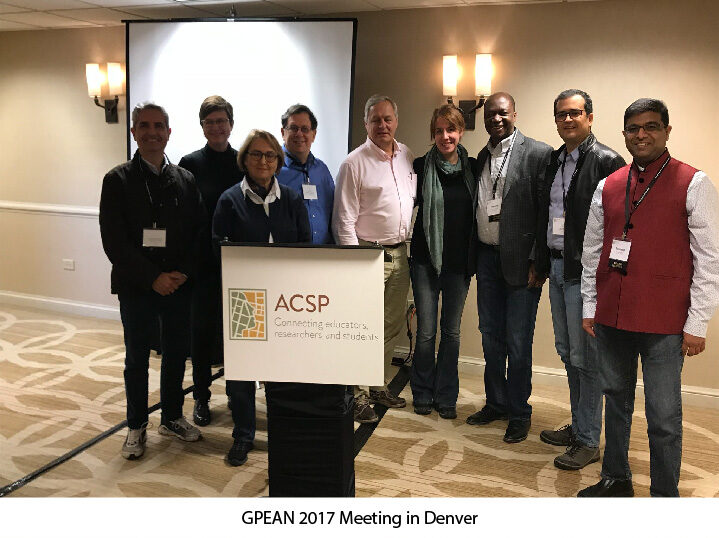
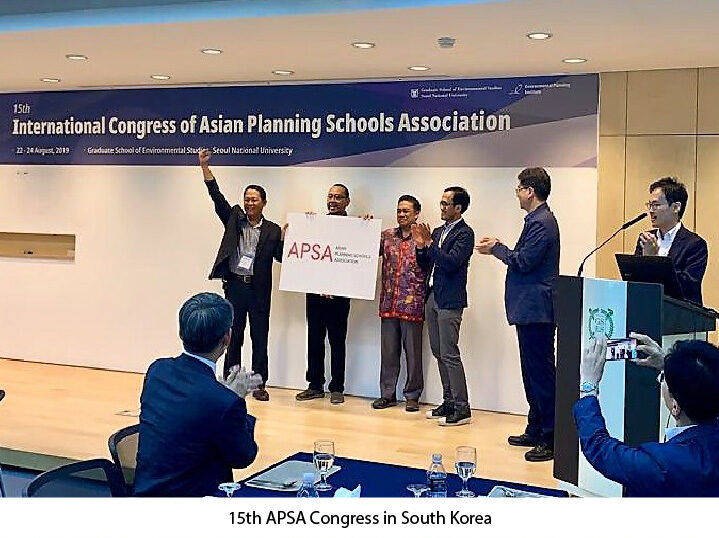
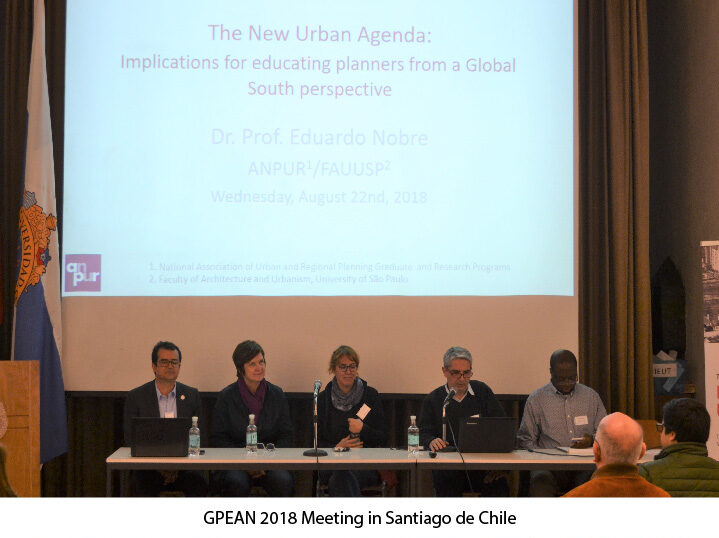
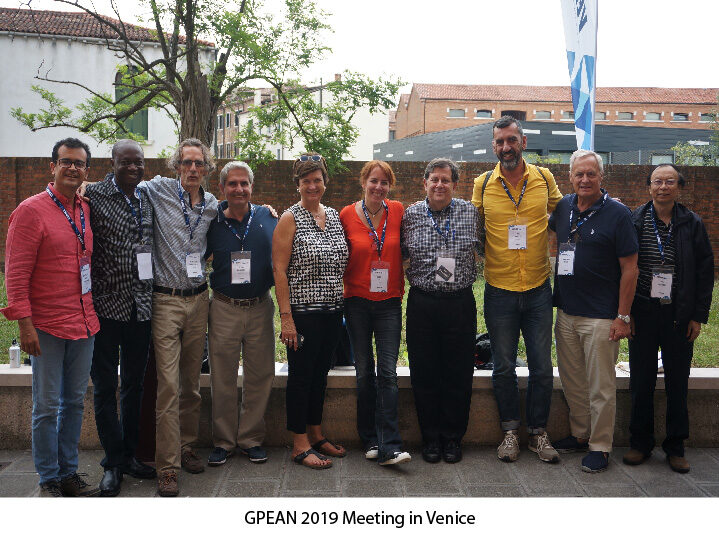
WPSC and APSA (2001 - 2022) "Two Decades of Dynamics Movements and Engagements"
In July 2001, the first World Planning Schools Congress (WPSC) was held in Shanghai, China, hosted by Tongji University, under the joint sponsorship of the Asian Planning Schools Association (APSA), the Association of Collegiate Schools of Planning (ACSP), the Association of European Schools of Planning (AESOP), and the Australia and New Zealand Association of Planning Schools (ANZAPS). This Congress brought together over 1000 planning educators, students, and practitioners from around the globe to share research findings and experiences on various aspects of planning practice and education. Two years later, The Global Planning Education Association Network (GPEAN) was formed by nine planning education associations, including Asian Planning Schools Association (APSA). This association was formed to develop collaborative activities to strengthen the global dialogue amongst planning practitioners and educators. Since then, very dynamics global planning education movement has been growing until recently. Up to now, there are at least 550 planning education institutions worldwide, which are grouped into 11 regional planning education associations – all are GPEAN members.
The year 2022 would be marked as the year of two decades of the WPSC, and has already decided in the fourth WPSC in Rio De Janerio in 2016, would be the year for the fifth WPSC would be a very remarkable moment. While in 2017, the 14th APSA congress was held in Beijing, China, and has decided that ASPI, The Indonesian Planning Schools Association, would be the host for the 16th APSA Congress in Bali, Indonesia. A joint between the 5th WPSC and the 16th APSA congress would be a very monumental event not only to celebrate two decades of global planning education association but, more importantly, to seek more productive collaborations among planning education institutions in this global village. In addition, 2022 would also be the six-year after the New Urban Agenda/The NUA signed in Quito in 2016. It would be then very interesting that the 5th WPSC and the 16th APSA Congress would also serve as means for monitoring and evaluating the planner’s contribution to achieving such important goals of achieving inclusive, safe, resilient, and sustainable cities human settlements.
This Program prepares by ASPI (The Indonesian Planning Schools Association) as the Local Organizing Committee (LOC) for this Joint WPSC-APSA Congress. The Program is prepared with the idea and spirit of celebrating two decades of a Joint WPSC and APSA Congress held in TongJi University, Shanghai, China, in 2001. Such a joint congress would not only mark the two decades of dynamic planning education movements around the globe but, more importantly, to respond to very dynamic planning challenges and opportunities brought by urbanization and urban growth in the era of disruption.
Mission of Conference
Bring together planning education actors, profesionals, from all continents through hybrid platform and encouraging debates, sharing experiences and solutions that may contribute to a more diverse planning education in the future through various programs.
Congress Theme
This conference theme, “Planning A Global Village: Inclusion, Innovation, and Disruption” will bring together several relevant and important issues that challenge planning notions and practices.
Traditionally, planning has been conceived as means for achieving and guiding better future. Planning is understood as a ‘prescriptive’ field which provides us clear and detail means and ways of achieving our dreams, goals, and objectives. The power of planning is believed to be its promises to bring about an improved condition and a better future.
Recent trends, however, indicate the dramatic and significant shift from the traditional approach of seeing things for granted to ‘disruptive innovation.’ It splintered into many aspects of individuals and communities, including planning and design. Not only does disruptive innovation become a cornerstone in current academic discourses, it also calls for new approaches in observing, critiquing and analyzing our contemporary issues and problems. As such, disruptive innovation deconstructs our traditional-comfort planning notions and practices and engages us in a new unprecedented era and territory.
Coupled with the trends toward inclusivity, understanding, conceiving and planning our global village, the idea that we throughout the world are interconnected through the use of new media technologies, become more exciting and interesting journey. Several questions could be rise from these situations and challenges: what are roles of space, time, and culture in this global village under the era of inclusion and disruption? How planning comprehend and conceive this unprecedented era? Can planning still able to provide useful directions to course the future of our global village?.
The joint 5th WPSC congress and 16th APSA congress in 2022, uses these ideas as backdrop for critically examining the effect of disruptive innovation and inclusion in planning and design. At the same time, the congress also considers topics related to globalization and the way it stimulates creative disruption and inclusion in planning and design. We encourage ideas that consider disruptive innovation and inclusion as other forms of machine capable to co-opt various actors and institutions in disseminating certain social, economic and cultural values, planning and design as a form of resistance against the commodification process diffused across space and social groups and is systematically embedded in the structural power relations of innovation politics, and historical assessment of space and built environment as a form of disruptive innovation.
Congress Event
The 5th WPSC and 16th APSA Congress will be held in hybrid sessions in Bali, Indonesia, from 29 August to 02 September 2022.









